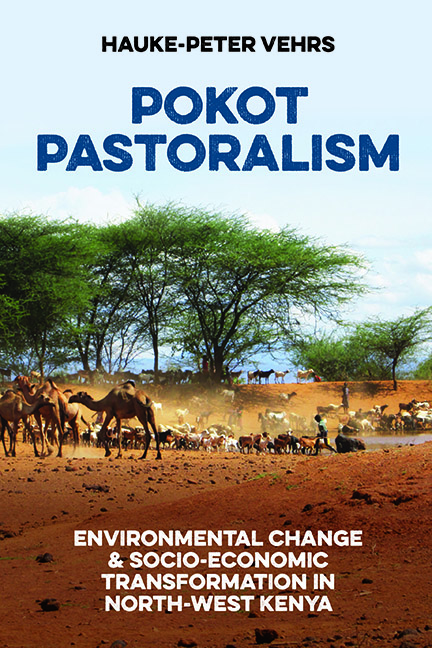Book contents
- Frontmatter
- Dedication
- Contents
- List of Illustrations
- Preface and Acknowledgements
- List of Abbreviations
- 1 Introduction
- 2 East Pokot: A Place and its People
- 3 Pokot Pastoral Livelihoods
- 4 The Paka Community
- 5 Environmental Changes in East Pokot
- 6 Socio-Ecological Transformations in the Agro-Pastoral Highlands
- 7 Ecological Change and Local Livelihoods: Scientific and Pokot Perspectives
- 8 Ecological Invasions: Agents of Socio-Ecological Transformation
- 9 Ecological Challenges and Social Transformations
- Appendix: Lists of Plant Names (Pokot–Scientific and Scientific–Pokot)
- Bibliography
- Index
- Future Rural Africa
7 - Ecological Change and Local Livelihoods: Scientific and Pokot Perspectives
Published online by Cambridge University Press: 16 July 2022
- Frontmatter
- Dedication
- Contents
- List of Illustrations
- Preface and Acknowledgements
- List of Abbreviations
- 1 Introduction
- 2 East Pokot: A Place and its People
- 3 Pokot Pastoral Livelihoods
- 4 The Paka Community
- 5 Environmental Changes in East Pokot
- 6 Socio-Ecological Transformations in the Agro-Pastoral Highlands
- 7 Ecological Change and Local Livelihoods: Scientific and Pokot Perspectives
- 8 Ecological Invasions: Agents of Socio-Ecological Transformation
- 9 Ecological Challenges and Social Transformations
- Appendix: Lists of Plant Names (Pokot–Scientific and Scientific–Pokot)
- Bibliography
- Index
- Future Rural Africa
Summary
Shifts in the East African savannah ecosystem occur on different levels and according to different time scales. Whereas the dry periods lead to a landscape dominated by dried-up vegetation and – from a pastoral view – the ongoing search for water and pasture, the rainy periods often turn the landscape abruptly green. From the short-term perspective, landscape changes occur regularly – for instance during drought periods – and pastoralists deal with these changes by applying versatile mobile strategies such as seasonal migration to those regions that, at a given time, provide the best basis for maintaining their herds. In the long term, spanning decades and centuries, pastoralists have also adapted to bush encroachment and pasture degradation by diversifying their livelihoods. However, the question arises why the environment is changing – sometimes slowly, sometimes rapidly. The latter was already mentioned in the last chapter when highlighting relations between land-use change and land-cover change in the highlands. This clearly revealed the connection between the spread of agricultural activities and the rapid expansion of Dodonaea viscosa.
In this chapter, I want to discuss the background to the long-term ecological changes and bush encroachment in East Pokot and scrutinise the formerly common explanation based on pastoral degradation narratives. In the following, I reflect on the land-use and land-cover changes from a scientific perspective, with an emphasis on several landscape agents. Two of these are rarely found in East Pokot nowadays: wildlife, and fire, which was used for pasture management. Their absence has had a tremendous impact on the environment and thus on local livelihoods.
Furthermore, I complement natural science accounts with the perceptions of the Pokot pastoralists, because the emic evaluations are also relevant and not just the scientific findings. In contrast to the science perspectives, the pastoral Pokot do not assume that processes and changes in the environment are linear. On the contrary, their prevailing assumption is that the cyclical generation classes recur over a period of more than 200 years. This return of older generation classes will not only re-establish characteristics of these generations such as their achievements in cattle herding, their effective defence against enemies or the raiding of neighbouring groups, but also lead to the reappearance of certain components of the environment.
- Type
- Chapter
- Information
- Pokot PastoralismEnvironmental Change and Socio-Economic Transformation in North-West Kenya, pp. 142 - 167Publisher: Boydell & BrewerPrint publication year: 2022



